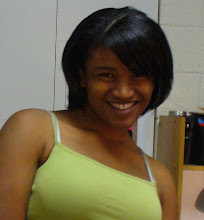Today I attended the writing workshop with Boudreau Freret who had some interesting things to say about writing in general, and writing on web 2.0 programs that are directly related to our class discussions about technology and its implementation in the classroom.
The first point he made that I want to mention is: All good writing is creative. Of course he claims he admits to having few sources to back-up his claim, but I agree with this point for some different reasons. Professors are continuously talking about providing and finding your own voice in your writing, and I think that directly relates to creativity. Anybody can make a claim, support it with evidence, and move on with their lives. But, it takes a real writer to take an academic argument and put a voice on it to make it somewhat entertaining. So, how do us writers find our voices? Well he had a suggestion. Pull up two applications. 1.Your paper that you must get done, but are having a hard time completing it. 2. A twitter link where you can post randomness that makes you laugh. Then alternate between writing between the two. His theory was great: use both sides of your brain (left is analytical right is creative) at the same time. It works for him... It might work for you. The problem that I had when we did the exercise is that I couldn't pull out my creative side because my mind was trying to wrap itself around the lawyer talk and I wasn't even sure I was reading English. However, I have been forming another idea. I started a journal (OK diary, but I can't stand that word) and inside all my complaining and randomness (twice in one blog!) I see myself, MY VOICE. Now, this is just a guess, but I think if I cut out the fluff in my journal I would have some pretty understandable, concise writing.
Which leads into Freret's second point. Good writing is concise writing. This is a point I have a hard time adjusting to. I have had three years of journalism training, where I wrote as little as possible as fast as possible. The longest paper I had to write was five pages, usually only for a final. Needless to say this transition to English and 12-15 page papers has been brutal. Freret says to write as much as possible, put down everything you can think of, then cut it down. It's a hard concept to get into. I'm still working on that.
The last and maybe the most important part of the workshop I want to mention is the use of Twitter and Facebook as educational tools. Freret refrains from the usual status updates: "Autumn Sanders went to the store for some bread." And instead uses the resources as a tool to give people (the world) interesting, creative information, sometimes just used to entertain himself. While I think these could be great tools that could bring a lot to education there are some questions we need to answer. How close should the teacher/student relationship be online? What age is too young? Do we really want to take away the student's freedom of social expression and make it into something they have to do? As technology progresses these among others are questions we must consider before jumping into these innovations.
Subscribe to:
Post Comments (Atom)

Interesting, Autumn. I continually move back and forth between my Facebook page and my writing assignments. I've always assumed that cruising Facebook between paragraphs was just a form of procrastination. I like this idea you share from Freret. Maybe I am just fueling the creativity I need to get my writing done.
ReplyDeleteI like the idea of just writing. Writing can often help develop ideas and assist in awakening our voice. As far as the teacher student relationship online, instructors should be able to keep a professional relationship with their students on 2.0 platforms. Students may need to be reminded of the student teacher relationship, but as long as both sides understand what that relationship should be like, there shouldn't be a problem.
ReplyDeleteWow, I SO wish that I had been able to attend this workshop; I am writing my paper on using web 2.0 (specifically social networking sites) in the classroom! I find it fascinating that students are such prolific and frequent writers on their facebook pages while they are often reticent writers in the classroom. My goal with my paper is to figure out how to harness the motivational power of these sites and possibly find ways to bridge the gap between academic writing and "personal" or informal writing. I love the idea of switching back and forth, because social networking sites bring out our unique voices like nothing else. Thanks for this awesome blog.
ReplyDelete